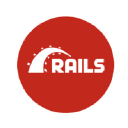
How I Started A $16K/Month Business Connecting Companies and Tech Freelancers
Hello! Who are you and what business did you start?
Hi, my name is Manuel and I’m the founder of Uplink, a network for IT freelancers in Germany.

We just crossed the 1.000 members threshold and the main service we offer to our members is simple, fair and transparent job placements.
Basically, companies contact us when they are looking for a freelance developer. Then we talk to them to find out what the freelancer’s tasks will be, whether they can work remote or onsite, what their budget is etc. and afterward we post the job in our community.
Our members can then apply for the job, we vet them to see if they are really a good fit, and if they are, we introduce them to the client. The client then checks out the freelancer’s profile and can either propose an interview time or reject the profile. If they propose an interview, from that point on the communication happens directly between the client and freelancer, and if they agree to work together, they sign a contract with each other and the freelancer invoices the client directly as well. So we are not really the ‘middleman’, like most IT recruiting companies, but we simply help our members to get in touch with great new clients, quickly, and painlessly.
We make money by charging a commission to the freelancer once they find a new client through Uplink. For the first six months of working together, we charge them 10% of what they invoice the client. Most freelancers simply add this fee on top of their rate, so effectively the client pays it, but it’s easier for us to charge the freelancer, since that way we don’t have to make a contract with the client or issue any invoices to them.
This is our monthly revenue in the last two years (in €):

As you can see, it fluctuates quite a bit from month to month, but it’s pointing in the right direction.
What's your backstory and how did you come up with the idea?
I’ve studied IT until 2006 and afterward worked as a developer, first for a few years in Stockholm and then since 2008 in Berlin. I was always a regular employee, but when I came to Berlin, I started working for a small startup, and all other developers there were freelancers, so I decided to become a freelancer as well.
It wasn’t so much a thought-out decision but just seemed like the right thing to do at the time, since I didn’t know how long I was going to work for the startup (or how long it would exist).
After that, I worked as a freelancer for the next 8 years for different startups, agencies and media companies here in Berlin. During that time, freelancing became more and more common for developers, and many companies who couldn’t find permanent employees chose to work with freelancers instead.
Choose a business that has customers you like. Being forced to work with/for customers that you don’t really like will be a huge drag on your motivation in the long term.
It was a great time, a lot of freedom and flexibility, but steady work (if you wanted it) and the pay was great as well (70-90€ per hour).
One thing that always bothered me, though, (and most other freelancers/developers as well) were IT recruiters - those slick guys wearing suits in their LinkedIn profile photo who bombard you with messages about jobs that don’t even remotely fit your profile. For them, recruiting is a pure sales job, and the freelancer is the resource to be sold to their customers, which are the companies. Most of them don’t have a technical background, so they are quickly out of their depth when you try to talk to them about the technologies and actual tasks to be performed in the project.
I’m over-generalizing of course, but there are surprisingly many recruiters that fit all stereotypes!
So in early 2016, probably after one recruiter spam message to many, I came up with the idea of a network (or community) of freelancers and simple, fair and transparent job placements - basically, all the elements that were missing in the way that typical IT recruiters approach their job. I started telling some freelancing friends about it and of course, they loved the idea! It was an easy sell.
The hard part was building and growing it, of course. For starters, you have the typical “two-sided marketplace” problem - the network is only worthwhile for freelancers if there at least one or two jobs are posted each week, and it’s only valuable to companies once there is a sizeable pool of freelancers that might be interested in their jobs.
I was pretty afraid of that in the beginning since I’ve always read that “marketplace startups are really hard”, but it turned out not to be too big of a problem. Basically, if you make it free and easy (i.e., no coding test) for the freelancer to join your community, some will simply join to try it out.
And if you make an effort to connect the members of your community with each other, without immediately trying to sell them something, they will naturally start interacting - chatting about topics like self-employment and dealing with recruiters (of course!), ask for recommendations for tax accountants and lawyers, post questions about which invoicing and time tracking tools everybody uses, etc. And if you furthermore continue to listen to what they talk about and how you (as the community founder) can help out, it turns out they really like that! And if you then start organizing regular meetups, for which you invite everybody to a craft beer bar and pick up the tab, you end up with a very lively community! :)
Take us through the process of designing, prototyping, and manufacturing your first product.
Since I’ve been a web developer (mainly working with Ruby on Rails) for about 10 years at the time that I started working on Uplink, I immediately sat down to write a basic web app that let me handle the freelancers, companies, introductions, etc. The next thing I built was a backend for the freelancers, where they could log in to set their basic information, skills, availability, etc.
This is not the recommended approach of course - getting an idea and immediately starting to build a web app. What I "should" have done is using freely available tools (Excel/Google Sheets would have been sufficient in my case) until the idea is validated and I’m fairly sure that it will work out somehow. But for a developer, it’s of course very tempting to try to solve the problem immediately with code, and in my case it worked out well and now I’m really happy that I started to build the system (that we still work with) early on and invested the time to improve it bit by bit over the years.
In the first year, I did everything myself - sourcing companies, onboarding freelancers, improving the web app. The only external help I needed was a designer since I’m awful at web design. Our designer is a freelancer as well, I initially found her via Upwork and worked with her on several small projects before Uplink, and she helped me design the second version of our website (the first one was cobbled together by myself), and since then with several other things (our admin dashboard, flyers, stickers etc.)
Describe the process of launching the business.
The only thing that might be considered a “launch” was the first version of our website that I put online within the first few days of having the idea for Uplink. I figured that I would send lots of emails to freelancers and potential customers, and I needed a website to link to that would explain the concept further.
Being aware of one’s own motivation to start and run a business is very important in my opinion. Is it to become rich, to not have a boss, to be the boss or to work less?
The first weeks and months went okay, as far as I remember. In my mind, it was the “exploration phase”, so I didn’t set any specific goals that I wanted to reach but rather just tried to find out what the companies wanted and what their specific pain points were in working with IT recruiters. Additionally, I wrote to a lot of IT freelancers in Berlin through LinkedIn and XING (the German version of LinkedIn) and told them about the network I wanted to launch, and if they’d be interested to join. The responses were very interesting, some freelancers just said “yes”, some asked me lots and lots of questions about what I wanted to accomplish with Uplink, how the payment would work, etc.
I was happy to explain everything many times and hear the criticisms that people had because that helped me to become more sure of my approach as well.
In regards to financing the business at that point, I basically had no costs apart from the time I invested, a small office room I rented for 150€ per month, and a few paid online tools like Mailchimp, but the total cost of those were probably less than 50€ per month. And that was for me one of the most attractive characteristics of the business - I could build it up step by step, basically without spending any money.
I was still making some money from freelancing at that point. I didn’t take on any new clients, but I had three clients that I had been working on for a long time, and the income from those covered my living expenses, although I worked only 3-4 days for them in total per month.
Since launch, what has worked to attract and retain customers?
We need to attract both freelancers and companies to Uplink, so let me talk about each one in turn.
Finding freelancers was pretty straightforward in the early days - I contacted them via LinkedIn or XING, told them about our network and asked if they wanted to join. About 20% of them said “yes”, about 30% said “no” for various reasons, and the rest never answered. I asked each freelancer that joined to invite some of their colleagues, which worked out not too well in the beginning (since nobody knew Uplink and the members weren’t sure what to expect) but it is our main source of new freelancers now.
Nowadays, freelancers need to fill out a form on our website to apply, and it includes a field “How did you hear about Uplink?”, and about 50% of the answers are “Recommendation from another freelancer”.
Another thing that worked out really well in attracting freelancers was finding blog posts or editorial articles like “10 platforms where freelancers can find new jobs” and asking them to include Uplink. Oftentimes, a single email was enough and we were included. And since many freelancers regularly search for new platforms, they end up on these lists and try out each one.
One such list from a well-known IT magazine here in Germany was the most ‘valuable’ for us. It took about 2 months until they included us and I had to send 10+ emails to different people and nag them every 1-2 weeks. But once we were on the list, we never had to worry about finding freelancers again - in the following months, about 80% of the freelancers who applied named this list when asked how they heard about us.
Talk to many other people who do something similar to what you (are trying to) do. It turns out, other founders are usually happy to talk to you if you tell them that you want to do something similar.
To find companies, we rely solely on recommendations, word of mouth, and Google. :)
Our website ranks quite well for a couple of keywords that clients search for when they are looking for a freelancer. When they find Uplink and like our approach, they can post a job directly from a form on our website (we check the job first, of course, and often contact the client with follow-up questions before posting) or request a callback from us.
The way to get our website to rank was simply on-page SEO, good (and a lot of) content, and a few high-quality backlinks through guest posts and interviews on startup magazines.
Recommendations from our members are by far our favorite way to meet new companies, though! The most common case is when a freelancer has worked (or is currently working) for a company, and someone from that company asks if they are available again or know any other freelancers. Then the freelancer can simply introduce the client to us and we take over. If we manage to place a freelancer with that company, the member who recommended them receives a kickback.
How are you doing today and what does the future look like?
We have been more or less profitable from day one since our costs are very low. We are a team of three and pay ourselves decent salaries, so that is our biggest cost. Apart from that, we pay 340€ per month for our office, about 100€ per month for hosting and online services, and maybe another 150€ per month for other stuff (tax accountant, graphic designer, etc.)
I think we definitely have the potential to double our business in terms of clients in the next 6 months, which is the main task of our new Head of Sales, who joined us in November.
We also want to broaden our client base. Currently, we’re mostly working with startups and agencies, but very few mid-sized (the famous German ‘Mittelstand’) or larger companies. While the sales cycles might be longer with these kinds of companies, and they definitely are more ‘high-touch’ than small startups, they also have longer projects, higher budgets, and often need a team instead of a single freelancer.
Through starting the business, have you learned anything particularly helpful or advantageous?
I feel like I’ve learned a million things since starting Uplink more than 3 years ago, but I always struggle to articulate these learnings in a way that would be helpful to other entrepreneurs. Let me try anyways...
One thing that worked out well was that I didn’t invest any time in writing a business plan, joining an incubator program, or doing more than only rudimentary market research (apart from what I had already experienced in the years prior when working as a freelancer), and just started doing the actual work, i.e. finding companies that were looking for freelancers and helping them in finding them. This kind of “learning on the job” is of course not always possible or advisable, but in my case, it led me to completely focus on what the client wants when I talk to them, not on what other freelancer networks or recruiters do differently.
Another thing that I did more or less subconsciously was trying not to make too many decisions upfront. There is this great quote from “Uncle Bob” Martin about software architecture:
"The purpose of a good architecture is to defer decisions, delay decisions. The job of an architect is not to make decisions, the job of an architect is to build a structure that allows decisions to be delayed as long as possible. Why? Because when you delay a decision, you have more information when it comes time to make it."
What I started with was “let’s help companies to find freelancers in a better way than how IT recruiters currently do it”, and every decision after that (the community approach, our Slack workspace, our commission model, etc.) came naturally when I really needed it, but not earlier.
And one more thing I did that I can recommend to pretty much everyone: talk to many other people who do something similar to what you (are trying to) do. It sounds obvious but I’ve met a lot of people who told me of an idea, and I replied, “oh, there’s this other company doing something very similar, have you talked to them?”, and they looked at me as if to say “No, why would I??”. Well, it turns out, other founders are usually happy to talk to you if you tell them that you want to do something similar, even if you’re not offering a ‘cooperation’ or ‘partnership’.
I have contacted pretty much every other freelancer network I’ve heard of, most of the time simply via LinkedIn with a message to the founder like “Hey, we seem to be doing similar things, I’d love to talk to you, when do you have time for a phone call?”
Almost all of these conversations were super-interesting and inspiring, and some lead to long-lasting friendships and yes, some even to cooperations. :)
One last piece of advice: always plan for the long-term. What can you work on today that will make your business better and more stable 5 years from now? How can you set up the relationship with your customers, so that they won’t just work with you this one time but so that they will keep coming back to you and even recommend you to their colleagues?
Often this means charging less than what you possibly could or spending money on things that don’t have an immediate ROI.
For example, we started organizing regular meetups, for which we invite all our members to craft beer bars around the city, simply because we wanted them to meet in person to give them a real sense of community. Each meetup costs us up to 500€ and there is no immediate benefit to our ‘business’, which is placing these freelancers with companies.
But in the long term, it creates trust and the freelancers know that we’re not just in it for the quick buck, but that we’re actually committed to building a community first, and a business second.
What platform/tools do you use for your business?
Uplink consists of three main parts:
- An admin backend, where we manage all freelancer profiles, companies, introductions, invoices, etc.
- A freelancer backend, where our members can log in and fill out their profile, skills, availability, etc.
- A client backend, where our clients can log in to see the freelancers that we introduced to them.
These parts are implemented in one web app, which I developed myself using Ruby on Rails. It’s a pretty standard Rails app, hosted on DigitalOcean, with a Postgres database running on Amazon RDS.
Our website is just static HTML, built using Middleman, and hosted on Netlify.
And of course, there’s our Slack workspace, for which every member gets an account. We have a pretty advanced integration with the fantastic Slack API, which we use to post jobs to specific channels, and the complete job application process is implemented in Slack as well.
What have been the most influential books, podcasts, or other resources?
I haven’t read many books in recent years. It might sound heretical, but I’ve lost the patience to struggle through the bad parts of a book just to reach the nuggets of wisdom hidden in the good parts.
I read lots and lots of online articles, though, and I’ve become really good at skimming an article to decide if it’s worth reading it in detail. Most articles pop up on Hacker News, and I subscribe to the wonderful Hacker Newsletter so I don’t miss any of them.
I listen to podcasts when riding my bike or on public transport. My favorite podcasts are Planet Money, Reply All, The Distance, digital kompakt (German), From Scratch, How I Built This, and This American Life.
Advice for other entrepreneurs who want to get started or are just starting out?
One thing I think about constantly is “Why am I doing this?” - not in a “What the hell have I gotten myself into??” kind of way, but just to question whether my current set of problems is better than the set of problems I had last year and whether I am moving towards a set of problems I (presumably) like even more.
Being aware of one’s own motivation to start and run a business is very important in my opinion. Is it to become rich, to not have a boss, to be the boss, to work less, etc.? Mostly it’s a mix of all of them, I guess, but being aware of them helps you to, for example, avoid ending up in a VC-funded rocketship startup, when you actually just wanted to get rid of your boss and work a bit less.
One more piece of advice that everyone has probably heard and read a million times: choose a business that has customers you like. Being forced to work with/for customers that you don’t really like will be a huge drag on your motivation in the long term. Before Uplink, I worked on a project in the affiliate marketing space for a while and looking back now, I’m really happy it didn’t go anywhere because neither did I understand nor appreciate the customers (i.e., affiliate marketers) that used the tool I built.
It’s much easier to get through the inevitable phases of low motivation when you can focus on your customers and realize that you actually like working with them.
Are you looking to hire for certain positions right now?
No, not right now. We were looking for a Head of Sales for a while but found one now!
We’re always interested to hear from people who could help us get in touch with companies that work with freelancers, though!
Where can we go to learn more?
If you have any questions or comments, drop a comment below!

Download the report and join our email newsletter packed with business ideas and money-making opportunities, backed by real-life case studies.

Download the report and join our email newsletter packed with business ideas and money-making opportunities, backed by real-life case studies.

Download the report and join our email newsletter packed with business ideas and money-making opportunities, backed by real-life case studies.

Download the report and join our email newsletter packed with business ideas and money-making opportunities, backed by real-life case studies.

Download the report and join our email newsletter packed with business ideas and money-making opportunities, backed by real-life case studies.

Download the report and join our email newsletter packed with business ideas and money-making opportunities, backed by real-life case studies.

Download the report and join our email newsletter packed with business ideas and money-making opportunities, backed by real-life case studies.

Download the report and join our email newsletter packed with business ideas and money-making opportunities, backed by real-life case studies.

























